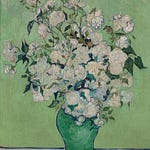If you ask a hundred people what education is all about, I guess most of them will say that it involves acquiring information, and learning a skill. I don’t quarrel with acquiring information. Just yesterday I was scanning the Periodic Table, just for the pleasure of it, and saw again what I’d forgotten, that aluminum is the metal with the lowest atomic number. “Well, huh,” as Debra’s beloved Uncle Willard, the farmer, might say. I don’t quarrel with learning a skill, either. When we got married, I don’t know that I’d ever hammered a nail into a two-by-four in my life. Ten years later I finished the third story of our house, building walls, hanging doors, fitting moldings, putting up a shiplap ceiling with 2400 board-feet of lumber, and installing bookshelves. Maybe, maybe three or four out of a hundred would mention something having to do with becoming a more fully human person, by “getting to know, on all the matters which most concern us, the best that has been thought and said in the world.” Those are Matthew Arnold’s famous words. And I think that Arnold was drawing near to Plato, who said what strikes us as odd, that education was all about getting the right music into your soul, or having your soul be formed and fashioned by it. And there’s our Word of the Week, music.
What is it about music that forms the soul? If you say to me, “People watch their children grow up, and they get old,” I shrug and tell you that everybody knows it. But if somebody strums a guitar and sings, “Sunrise, Sunset,” I am spellbound — and don’t you know that the old Latin word for a magical spell was carmen, the same word for song? One night in 1983 I was on the Ponte Vecchio in Florence, and there was a burly barefoot fellow with a long red beard, playing a harp. I stood, and dozens of people stood roundabout, absolutely still. He didn’t look at us, didn’t say or sing a word; he didn’t have to. We forgot ourselves. We may have remembered many a more important thing. One evening on Holy Thursday, when I was home from college, I went to church, and I heard children singing, for the first time in my life — yes, I confess it was the first time — Thomas Aquinas’s hymn, “Pange, lingua,” as the procession made its way from the altar through the church to the repository. Those few minutes were more of a power in me than were all the sermons I’d ever heard before, put together. Speech appeals to the reason — or sometimes it does, anyhow. But beautiful music appeals to the inmost reaches of the soul, to what the old thinkers called intellect, when you see something and know it before you even have words to describe it, if it can be described in words at all.
The word music is the adjective for the noun Musa, the Muse, both words borrowed into Latin from Greek. The Muses were nine daughters of Zeus, borne by the goddess Mnemosyne, the goddess of memory: and in fact the words memory and Muse are very likely related, both coming in one way or another from the ancient Indo-European root men-, to think, which has a wide variety of descendants in pretty much all of the daughter languages: English mind, for instance, or the name Mentor, in Homer’s Odyssey, or Russian po-mnit’, remember. Music, of course, is a great aid in remembering, and what would a kid remember in the heyday of ancient Athens, if not songs? That’s how the poems of Homer were passed along for hundreds of years, before anybody took the trouble to record them in writing. In Welsh, if you learn your lessons, you learn your gwersi, your verses: the idea comes from instruction in poetry and song. Even in English, that’s what it meant once to be well-versed: you’ve got the music by heart.
We have a sense that music approaches what does not change, what is everlasting. That’s why, I think, the Muses are the daughters of Memory. It isn’t just that they help us remember what once happened; though there is, after all, a Muse of History, Clio. It’s that they turn our eyes away from the broils and the passions of the hour, to gaze at peace upon pure beauty. Hence the highest of the Greek Muses is Urania, the muse of astronomy, the muse of the stars and their order and beauty. But the Muse beyond even Urania brings us into the presence of the divine. Do I really think that beautiful music, even in its humblest form, say a charming folk song about young love, can do that? Yes, I do.
Listen to this episode with a 7-day free trial
Subscribe to Word & Song by Anthony Esolen to listen to this post and get 7 days of free access to the full post archives.













